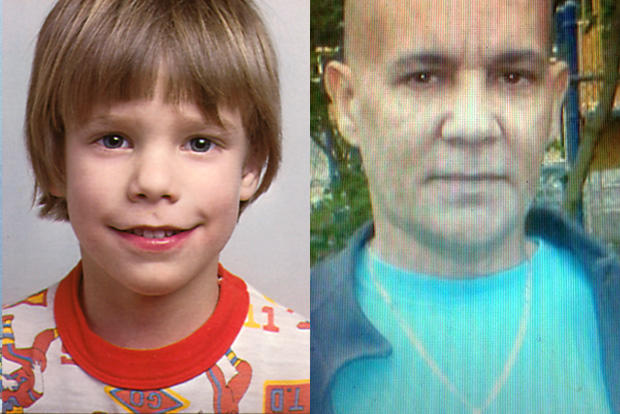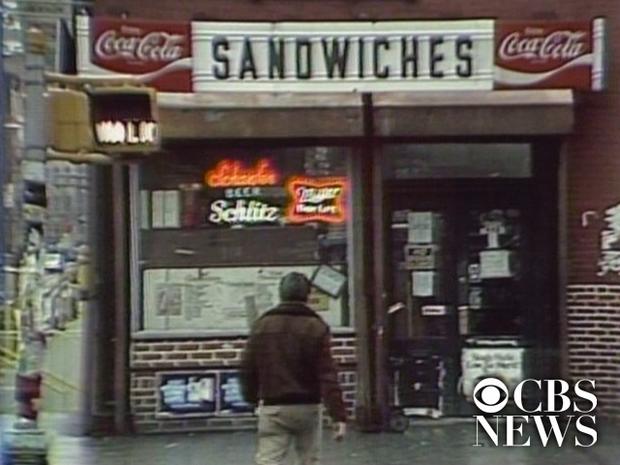Patz suspect hospitalized as suicide risk
Updated 5:21 PM ET
(CBS/AP) NEW YORK - The man accused of murdering 6-year-old Etan Patz was hospitalized for fear he might attempt suicide as he awaited arraignment Friday, exactly 33 years after the boy vanished without a trace in one of New York City's most traumatic missing-child cases.
After decades of dead-end leads and false hopes among investigators, Pedro Hernandez, a former convenience-store stock clerk, was arrested Thursday in the 1979 slaying.
Hernandez, 51, of Maple Shade, N.J., was scheduled to be arraigned on murder charges sometime Friday -- a date now recognized as National Missing Children's Day.
Police said he was taken to a secure wing at Bellevue Hospital to get medication for an existing health problem, doctors there ordered him admitted after he made statements about wanting to kill himself.
A court spokesman said arrangements were being made to conduct the arraignment via video from his hospital room.
Patz suspect gets psych exam ahead of arraignment
Etan vanished on a two-block walk to his school bus stop in Manhattan. Hernandez, who was 18 at the time, told investigators this week that he lured the little boy into the shop with the promise of a soda, then led him to the basement, choked him and put his body in a bag with some trash about a block away. Authorities never found a body.
The court proceedings were set to unfold even as investigators were still working to corroborate what they said was an emotional, surprise confession by Hernandez, who emerged as a suspect in the decades-old case just days ago.
Crime-scene investigators arrived Friday morning at the building in Manhattan's fashionable SoHo section that once held the bodega where Hernandez worked.
People who lived in the neighborhood in the late 1970s described the place as a neighborhood institution, and one of the few places to buy groceries in a part of the city that was then grimy, industrial and only just emerging as a haven for artists.
Hernandez's court-appointed lawyer, Harvey Fishbein, had no comment as he arrived at the courthouse, saying he hadn't met with his client yet.
He asked reporters to be respectful of some of Hernandez's relatives assembled at the courthouse, including his wife, daughter and another man, who huddled together on a wooden bench, turning away interview requests for more than an hour.
"It's a tough day. The family is very upset. Please give them some space," Fishbein said.
Crime-scene investigators arrived Friday morning at the building in Manhattan's fashionable SoHo section that once held the bodega where Hernandez briefly worked, and where police said the boy was killed.
Etan's father, Stanley Patz, avoided journalists gathered Friday outside the family's Manhattan apartment, the same one the family was living in when his son vanished.
Former Soho resident Roberto Monticello, a filmmaker who was a teenager when Patz disappeared, said he remembered Hernandez as civil but reserved and "pent-up."
"You always got the sense that if you crossed him really bad, he would hurt you," Monticello said, although he added that he never saw him hit anyone.
Monticello said Hernandez was also one of the few teenagers in the neighborhood who didn't join in the all-out search for Etan, which consumed SoHo and the city for months.
"He was always around, but he never helped. He never participated," Monticello said.
Police Commissioner Raymond Kelly said Friday that investigators had yet to determine any motive for the slaying, but authorities said they have a detailed, signed confession, as well as accounts of incriminating remarks Hernandez made to others.
But police have no physical evidence or a motive for the killing, something legal experts said could be difficult when prosecuting the case.
"The only thing you have, as of right now, is a freestanding confession without any corroboration whatsoever," defense attorney Ron Kuby, who does not represent Hernandez, told WCBS 880's Steve Scott. "And while juries to tend to believe confessions, they want corroboration and they want a motive. And the fact is, at least according to what's been publicly announced, Mr. Hernandez claimed that for absolutely no reason, he grabbed a total stranger, a small child, lured him downstairs, murdered him, then disposed of the body."
Etan Patz disappeared on May 25, 1979, after his parents, Stan and Julie Patz, allowed him to walk the two blocks to his school bus stop for the first time. The stop was adjacent to the neighborhood bodega where Hernandez worked, police said.
The boy never made it onto the bus. His disappearance sparked a massive search, but no trace of him was ever found.
Hernandez wasn't initially questioned like other workers at the bodega and moved to New Jersey not long after the killing, Kelly said.
In fact, when Manhattan District Attorney Cyrus Vance reopened the case two years ago, the NYPD and FBI worked with a list of the top 10 possible suspects and Hernandez wasn't on it, reports CBS News senior correspondent John Miller.
But the commissioner said Hernandez had told a relative and others, as far back as 1981, that he had "done something bad" and killed an unnamed child in New York City. He emerged as a suspect after a tipster contact police, following news reports about a fruitless search for the boy's remains last month in a basement near the Patz family home.

